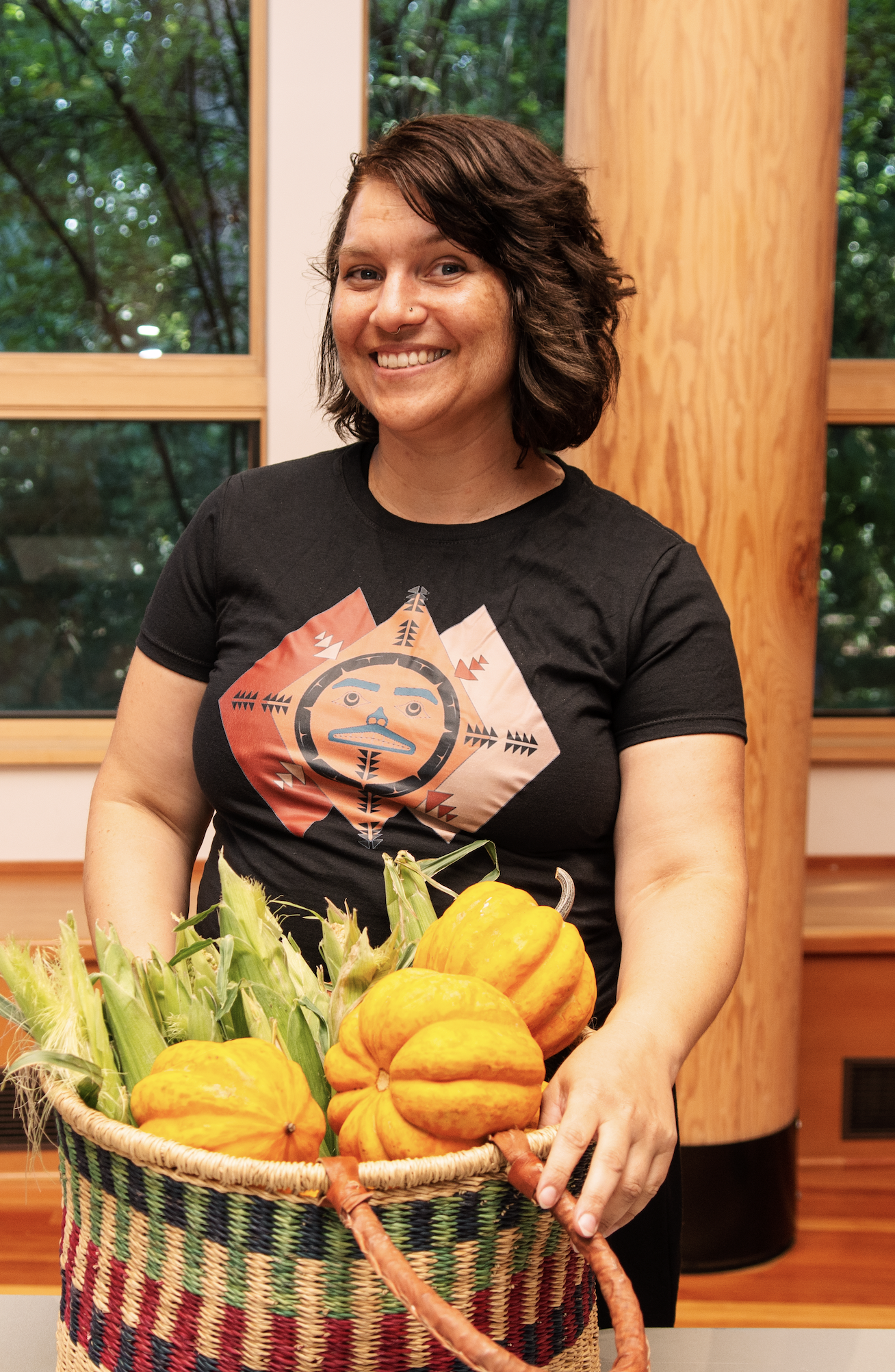 Amanda Rose is earning a Baccalaureate of Science degree in Environmental Science and Policy, a Certificate In Native American Studies, a minor in Outdoor Adventure Leadership, and microcredentials in Sustainable Food Systems and Environmental Research and Data Analysis. Amanda anticipates graduating summa cum laude in December 2023.
Amanda Rose is earning a Baccalaureate of Science degree in Environmental Science and Policy, a Certificate In Native American Studies, a minor in Outdoor Adventure Leadership, and microcredentials in Sustainable Food Systems and Environmental Research and Data Analysis. Amanda anticipates graduating summa cum laude in December 2023.
Amanda is interested in the area of sustainable relationships, especially within social-ecological systems, as well as how they have changed over time and the drivers of those changes. Other areas she is interested in include critical geography, the praxis of living stewardship on all landscapes, the protection of global ecosystems and biodiversity, biomimicry in sustainability, and policy innovation for socioeconomic and ecocultural equity.
Amanda is proud to have been on Southern Oregon University’s President’s list from Fall 2020 to the present, to have received recognition as an Outstanding Junior of Environmental Science and Policy in June of 2022, and to be part of the 2023 cohort of Southern Oregon University’s Ronald E. McNair Post-Baccalaureate Achievement Program. Her undergraduate education has been supported by the Ford Family Foundation since September of 2020. She has been a part of the Shasta Takelma Learning Garden since April 2021, volunteering hundreds of hours working on a project that is replacing the landscape surrounding SOU’s Science Building with an Tribally-led Indigenous Learning Garden “guided by Tribal land management practices to achieve the following goals: Honor Tribal sovereignty and self-determination, support access to First Foods and Food Sovereignty, provide an Indigenous classroom on campus for Native American Studies, STEM, and other classes, and dramatically increase the ecological value of the land by planting regionally native plants”. Amanda is a member of the Society for Ecological Restoration, the American Association of Geographers, and the Congress for The New Urbanism.
After completing her undergraduate studies, and graduating from Southern Oregon University, Amanda plans to continue her scholarship on improving how humans relate to and exist within the environment through policy and practice by attending a Geography doctoral program grounded in pragmatic methodologies and focused on the hands-on research, application, and dissemination of progressive ecosystem stewardship practices that center the work of Indigenous scientists and place-based environmentalism. Upon completion of a doctoral education, she is looking forward to helping shape global environmental policy and interdisciplinary philosophical shifts in the praxis of environmental justice.
McNair Faculty Mentor: Dr. E. Jamie Trammell, Chair and Associate Professor of Environmental Science
Scholar Curriculum Vitae




